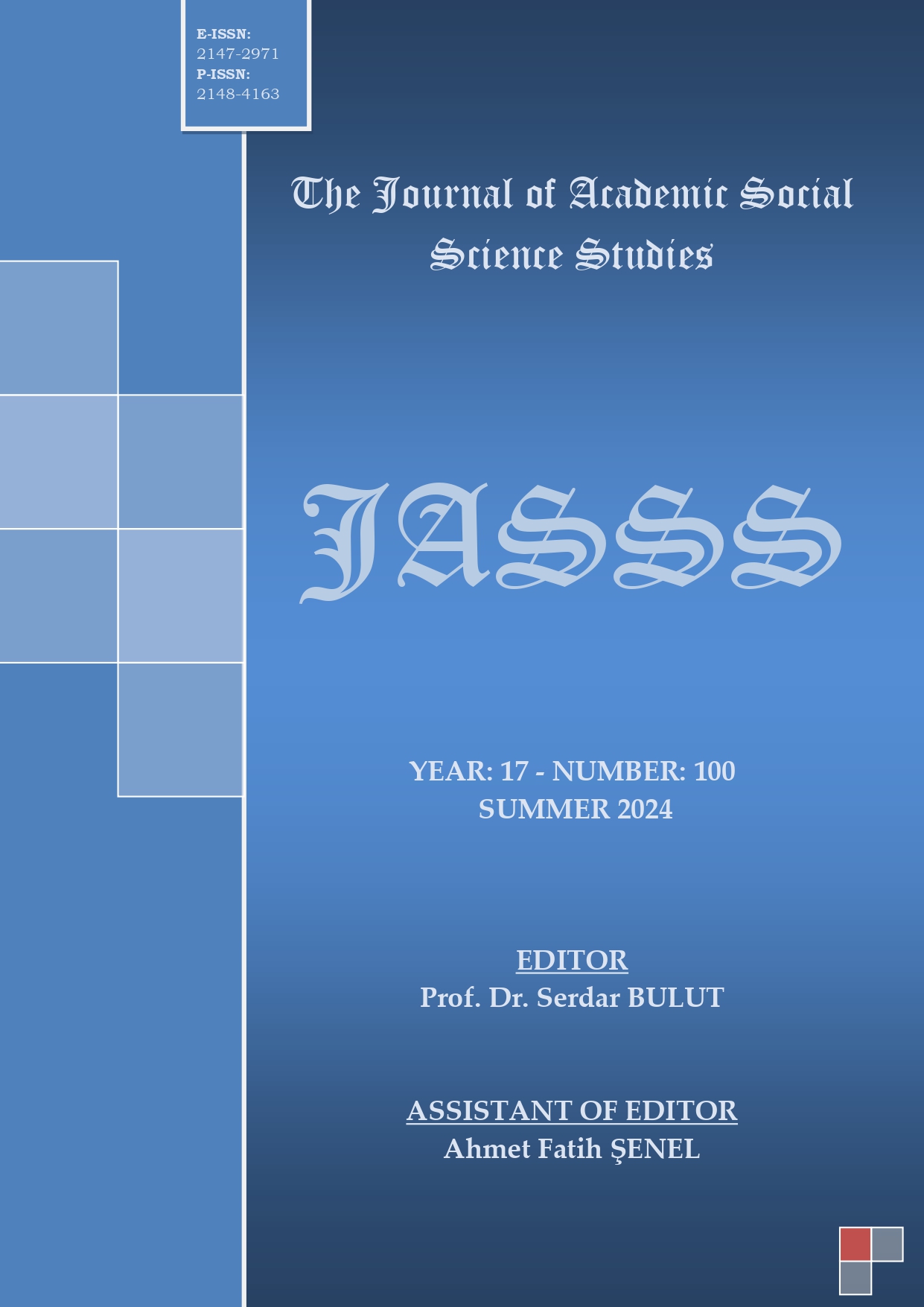SÜRDÜRÜLEBİLİRLİKLE İLGİLİ SORUNLARIN ÇÖZÜMÜNDE MATEMATİKSEL MODELLEME ETKİNLİKLERİNİN UYGULAMA SÜREÇLERİ
Author :
Abstract
Disiplinler arası öğrenme yöntemlerinin ön plana çıktığı son zamanlarda sürdürülebilirlik ve çevresel sorunların ele alındığı görülmektedir. Matematik eğitimi içerisinde sürdürülebilirlik bağlamının nasıl yer alabileceği, bu bağlamda ele alınan matematik eğitimi sürecinde matematiksel bilgi ve becerilerin kazanılması konusundaki kaygılar ön plana çıkmaktadır. Özellikle disiplinler arası öğretim modellerinde matematiğin geri planda kalması, ilişkili görülmemesi gibi sorunlar etkinlikler esnasında matematiksel bilgi ve becerilerin ön planda yer almadığı düşüncelerine yol açmaktadır. Bu araştırma matematik dersi kapsamında sürdürülebilirlik bağlamında matematiksel modelleme etkinliklerinin uygulama sürecini ortaya koymayı amaçlamaktadır. Araştırma bir durum çalışması olarak uygulanmıştır. Araştırma iki aşamalı olarak planlanmıştır. Bu aşamalardan ilki sürdürülebilirlik ve sosyoekolojik sorunlar bağlamında matematiksel modelleme etkinliklerinin oluşturulmasıdır. Sürdürülebilir Kalkınma Hedefleri kapsamında Oluşturulan Havamızı Temizleyelim, Kent Parkımız ve Rüzgârdan Sürdürülebilir Enerji etkinliklerinin öğrencilerle ele alınması araştırmanın ikinci aşamasıdır. Araştırma 3 adet sekizinci sınıf öğrencisi ile yürütülmüştür. Araştırmacılar tarafından geliştirilen dört adet sürdürülebilirlik bağlamında matematiksel modelleme etkinlikleri öğrencilerle ele alınmıştır. Öğrencilerin matematiksel modelleme etkinliklerini çözüm süreçlerinin yanı sıra sürdürülebilirlik, sosyoekolojik ve çevresel sorunlara yönelik farkındalık gözlemlenmiştir. Öğrencilerin matematiksel modelleme etkinliklerini çözüm sürecinde matematiksel modelleme aşamalarını gerçekleştirdikleri, matematiksel süreçleri ortaya koydukları gözlemlenmiş ve bu aşamalarda sürdürülebilirliğe yönelik söylemlerde bulundukları belirlenmiştir. Sürdürülebilirlik ve sosyoekolojik sorunlar bağlamında ele alınan modelleme etkinliklerinde öğrencilerin hem disiplinler arası hem de matematiksel bilgi ve becerilerini ön planda kullanabildikleri ortaya çıkmıştır.
Keywords
Abstract
Recently, interdisciplinary learning methods have come to the fore and sustainability and environmental problems have been addressed. Concerns about how the sustainability context can be included in mathematics education and the acquisition of mathematical knowledge and skills in the mathematics education process discussed in this context come to the fore. Especially in interdisciplinary teaching models, problems such as mathematics remaining in the background and not being seen as relevant lead to the idea that mathematical knowledge and skills are not at the forefront during activities. This research aims to reveal the application process of mathematical modeling activities in the context of sustainability within the scope of mathematics course. The research was implemented as a case study. The research was planned in two stages. The first of these stages is the creation of mathematical modeling activities in the context of sustainability and socioecological problems. The second stage of the research is to discuss the Let's Clean Our Air, Our City Park and Sustainable Energy from Wind activities, which were created within the scope of the Sustainable Development Goals, with the students. The research was conducted with three eighth grade students. Four mathematical modeling activities in the context of sustainability developed by the researchers were discussed with the students. In addition to students' solution processes in mathematical modeling activities, awareness of sustainability, socio-ecological and environmental problems was observed. It was observed that the students carried out the mathematical modeling stages and revealed the mathematical processes in the solution process of the mathematical modeling activities, and it was determined that they made discourses regarding sustainability at these stages. It has been revealed that students can use both their interdisciplinary and mathematical knowledge and skills in modeling activities handled in the context of sustainability and socioecological problems.





